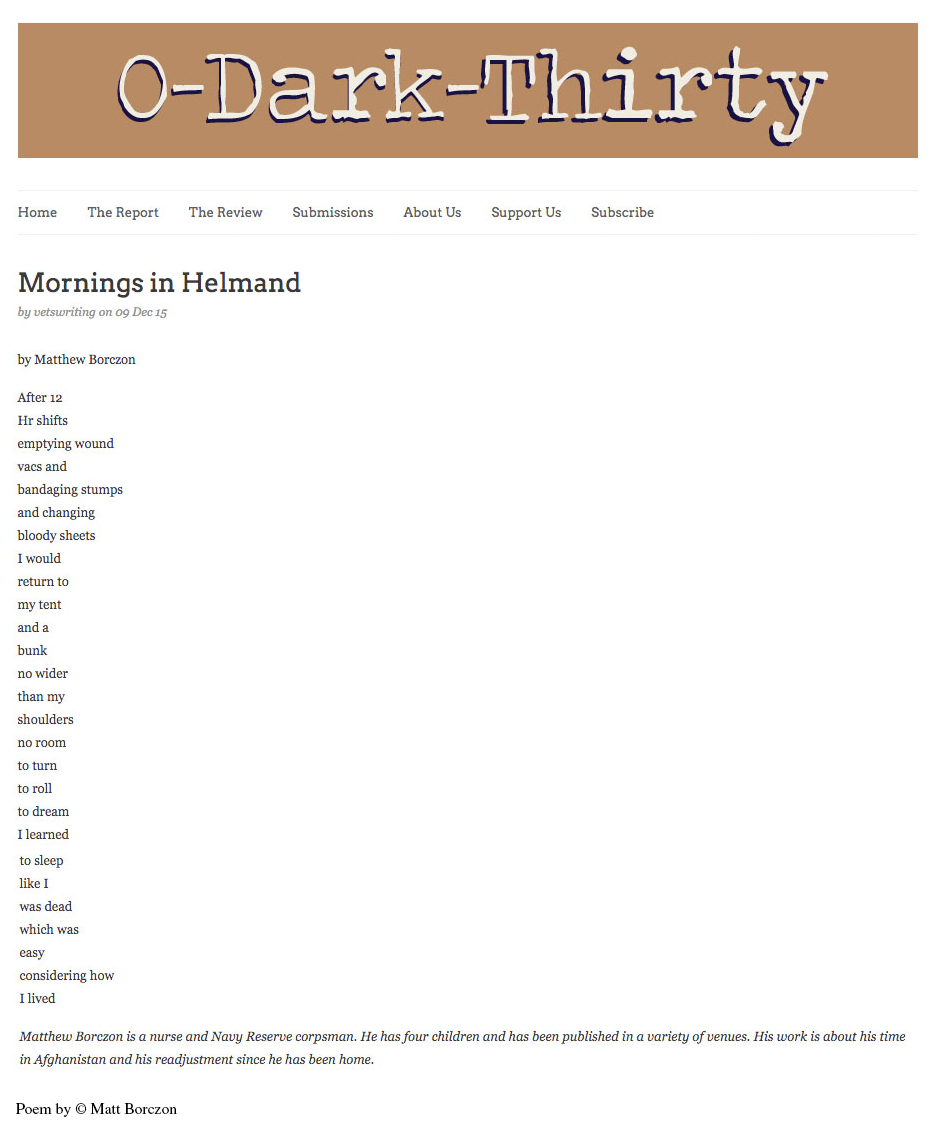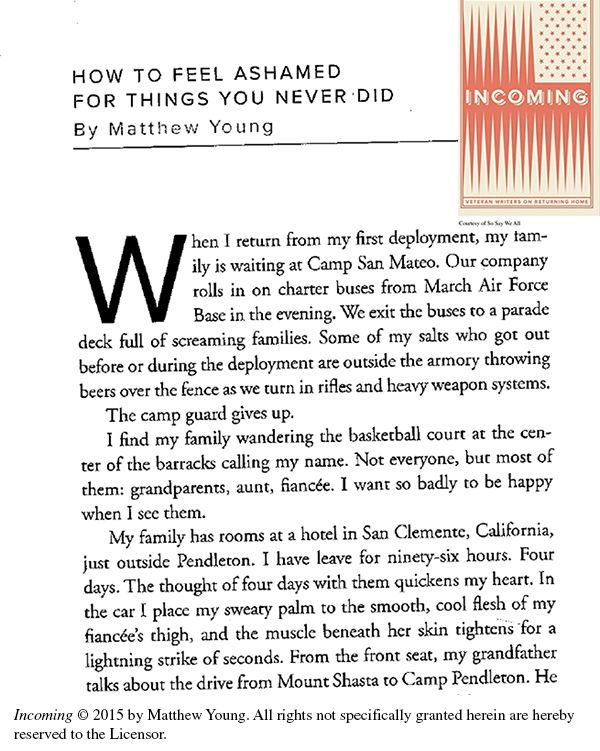Chapter 6.
Chapter 6: Genre Talk
Click to enlarge the images and read "Mornings in Helmand” and the excerpt of “How to Feel Ashamed for Things You Never Did." Check your comprehension of genre by answering the following questions. Then “submit” your work.


The poem reads as follows: After 12 Hr shifts emptying wound vacs and bandaging stumps and changing bloody sheets I would return to my tent and a bunk no wider than my shoulders no room to turn to roll to dream I learned to sleep like I was dead which was easy considering how I lived.
Title: How to Feel Ashamed for Things You Never Did by Matthew Young Text: When I return from my first deployment, my family is waiting at Camp San Mateo. Our company rolls in on charter buses from March Air Force Base in the evening. We exit the buses to a parade deck full of screaming families. Some of my salts who got out before or during the deployment are outside the armory throwing beers over the fence as we turn in rifles and heavy weapon systems. The camp guard gives up. I find my family wandering the basketball court at the center of the barracks calling my name. Not everyone, but most of them: grandparents, aunt, fiancée. I want so badly to be happy when I see them. My family has rooms at a hotel in San Clemente, California, just outside Pendleton. I have leave for ninety-six hours. Four days. The thought of four days with them quickens my heart. In the car I place my sweaty palm to the smooth, cool flesh of my fiancée's thigh, and the muscle beneath her skin tightens for a lightning strike of seconds. From the front seat, my grandfather talks about the drive from Mount Shasta to Camp Pendleton. He
Question
1. Take a close look at the way “Mornings in Helmand” is typeset. How does the poem’s layout relate to its subject matter?
Question
2. Consider the title of “How to Feel Ashamed for Things You Never Did.” What types of sources might this reflection draw from?
Question
3. The writers use the genres of poem and essay to share reflections on their wartime experiences. Which is NOT a secondary writing purpose for these authors?